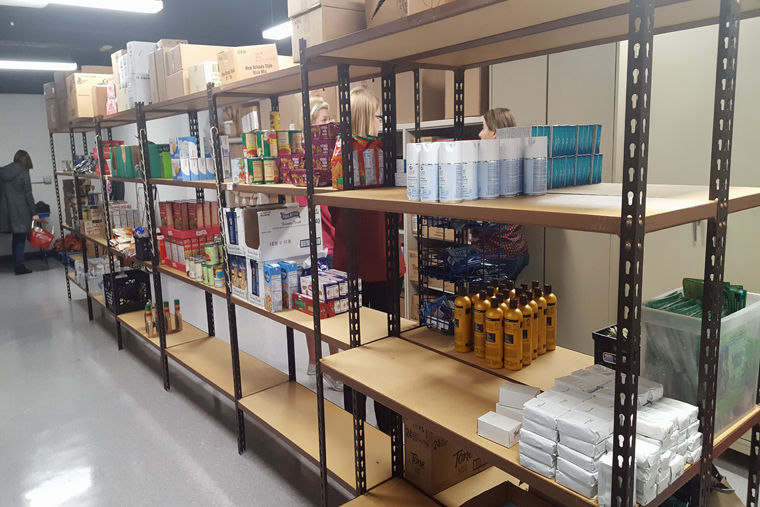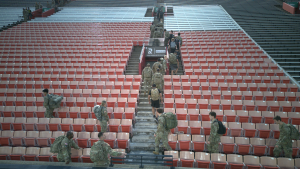Students need food security
October 24, 2016
Students should be aware of the resources available to them if faced with food insecurity, which is a problem college students are experiencing nationwide.
For many students, going off to college is their first experience living away from their parents. With all the stresses associated with the independence that college life can bring, one stressor that no college student should have to worry about is whether or not they will have access to food that day.
Food insecurity is “the lack of reliable access to sufficient quantities of affordable, nutritious food,” according to a study published by The College and University Food Bank Alliance. That Oct. 2016 study conducted by the CUFBA, found that 20 percent of students at four-year schools across the U.S. reported having very low food security.
I am disturbed this is an issue facing college students. Although I’m an independent student living off campus, I have seen friends of mine venture off on their own for the first time and struggle financially. While they relished their newfound independence, many were ill-prepared to deal with the financial burden associated with independent living. This is an area I think NIU, and all colleges, should focus on with incoming students to avoid food insecurity situations.
NIU’s Huskie Food Pantry is a valuable tool for students who struggle with access to food. The pantry is available to currently enrolled NIU students who are not on a meal plan, according to the Huskie Food Pantry’s website. The pantry is open from 5:30 to 7:30 p.m. every Thursday in the Chick Evans Field House and requires an NIU OneCard for access. The Huskie Food Pantry also offers emergency “To-Go” bags to aid students facing emergency food shortages, according to the Huskie Pantry’s website. While the pantry is available to students, some are not aware NIU offers such services.
“If I found myself without access to food while at NIU, I can’t say I know the resources available to me to help me get food…this is actually my first time hearing about [the Huskie Food Pantry],” said freshman business major Kyle Williams.
Being aware that such services exist on campus is crucial to helping students who may be facing food shortages. Although I have been an NIU student since January, I too only recently discovered the Huskie Food Pantry.
Sam Wrzesinski, senior family social services major, has been working as an intern at the Huskie Food Pantry since August. She says that food insecurity continues to be an issue because most people overlook the fact that it is a major problem.
“It is almost considered normal to be a starving college student, eating ramen for every meal…but it becomes an issue when students are focusing more on where they are getting their next meal from than studying and their education,” said Wrzesinski.
Another option, for certain students, is the Supplemental Nutrition Assistance Program offered by the Illinois Department of Human Services. SNAP assists low-income individuals and families with purchasing the food they need for good health, according to the IDHS website. However, there are many restrictions on who qualifies for the program. For example, college students are not eligible for the program unless they are currently working at least 20 hours per week, according to the IDHS website.
If a student qualifies for SNAP benefits, they are allotted a specific monthly allowance which is deposited onto an Illinois Link Card. The card may be used at grocery stores.
The goal of the Huskie Food Pantry is to offer support to students facing food insecurity and provide information on the resources available to them, said Liz McKee, Huskie Food Pantry supervisor.
“I would encourage them to come to the food pantry. We have created a fun, market-style atmosphere there. Students are able to shop through our pantry much like they would at Aldi, and even check-out after they are done shopping. We try to make our students feel as welcome as possible,” said McKee.
Huskie Food Pantry is the most practical option for students in need. The long list of restrictions on who is eligible for SNAP benefits makes it less practical. However, I encourage students in need to review the IDHS website to see if they qualify for SNAP benefits.
Food and monetary donations can be made to the Huskie Food Pantry at the Campus Life Building, Room 150, Monday through Friday, 8 a.m. to noon or 1 p.m.to 4.







